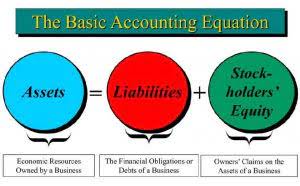
The nature and limitations of financial accounting can be set through accounting principles and techniques. Accounting helps in managing the business, thereby influencing the clients in investing money in their business. In conclusion, the distinction between accounting and accountancy lies in their scope, purpose, and audience.
Communication Skills
On the other hand, accountancy specifically refers to the profession or practice of applying accounting principles and standards, emphasizing compliance, ethics, and financial advisory roles. Apart from the above-mentioned types, accounting is based on five basic principles. They are the revenue recognition principle, matching principle, full disclosure principle, cost principle, and objectivity principle.
- The difference between accounting and finance is becoming clearer as technology automates repetitive tasks in both fields.
- Corporate accounting is defined as the process of handling and filling the financial data of the company for tax compliance.
- They also manage investor relations and must uphold high ethical standards to prevent conflicts of interest and fraud.
- Whether you aspire to be a Certified Public Accountant (CPA), management accountant, or financial analyst, the field is rife with possibilities for specialization and growth.
- This way, you not only pay accountants fairly but also get the best bang for your buck.
- Doing so helps businesses avoid overextending themselves by underestimating the value of assets and overestimating the liabilities that they owe.
- Here is a closer look at accounting and accountancy and their relevance to business professionals.
BA 302 Business Law and Ethics

Accountancy and accounting have subtle differences in the following aspects. If you also plan to take the CPA exam, review the requirements for the state(s) you plan to seek licensure. If you aren’t sure which option is right for you, take this short program selection quiz. With 100% online coursework, Boise State’s Online MSA gives you the freedom to earn a graduate degree at your own pace while meeting the other obligations in your life. Currently Dean of the College of Business and Information Technology, Kathryn Uhles has served University of Phoenix in a variety of roles since 2006.
Finance vs Accounting: What’s the Difference? CORE

And if the company in question is public, its financial statements must also comply with the Securities and Exchange Commission (SEC) regulations. So, these are some of the contrasting points between accounting and accountancy. Now, let us look at some of the objectives and characteristics of both accountancy and accounting. There are certain objectives and characteristics of accounting and accountancy that we will discuss later. Both Accounting and Accountancy are evolving rapidly due to advancements in technology and changes in regulations.
- On the other hand, accounting is more about application since it details the steps needed to put accountancy concepts to practical use.
- Although accounting and finance often overlap, their purposes are distinct.
- Both fields offer rewarding careers, yet understanding their differences is key to making informed decisions.
- It’s a fundamental means for determining whether a company’s financial records accurately reflect the transactions carried out over a period of time.
- While communication may seem more essential in finance, it is becoming increasingly important in accounting as well.
What’s the difference between accountancy and accounting?

The BLS shows that California – a bustling economic hub gross vs net – has the highest employment level for Accountants. Below, we’ve compiled the most relevant information, giving you a clear picture of what accountants earn so you can make informed decisions. Accounting requires attention to detail, proficiency in accounting software, and knowledge of tax and regulatory laws. Finance demands analytical skills, strategic thinking, and knowledge of markets and investment tools.
Top Cybersecurity Solutions for Business: Protect Your Digital Assets
On the other hand, accountancy specifically denotes the profession or practice of accounting. It includes the application of accounting principles and standards to ensure accurate financial reporting, compliance with regulations, and ethical practices. In essence, accounting serves as the language of business, enabling entities to track law firm chart of accounts income and expenses, assess profitability, manage cash flow, and comply with financial regulations.

Automation and Future Tech Trends

It aims at providing information to the interested parties to make sound financial decisions. Free cash flows is arguably the most important one, which examines how much money a company has to distribute to investors, or reinvest, after all expenses have been covered. It’s a strong indicator of profitability, and can be used to make present-day investment decisions based on an expectation of future payoff.
- Cost accountants track the company’s spending across these three areas and create internal reports that break it down.
- HBS Online does not use race, gender, ethnicity, or any protected class as criteria for admissions for any HBS Online program.
- Accountants are responsible for maintaining transparency and ensuring that financial records are accurate and truthful.
- Accountancy is discussed through tree partial systems and their connections.
- Accountants are experts in financial analysis and play a crucial role in safeguarding a company’s financial integrity.
- Tax accountants help individuals, businesses and nonprofit organizations comply with the Internal Revenue Code.
It involves strategic thinking to drive growth and achieve long-term goals. On the other hand, accounting is about recording, summarizing, and analyzing financial transactions to ensure accuracy. It focuses on maintaining reliable records and complying with financial regulations. Understanding the difference between accounting and finance highlights their distinct yet complementary contributions to business success. Finance professionals are entrusted with managing sensitive financial data and making decisions that affect a company’s bottom line. They also manage investor relations and must uphold high accountancy ethical standards to prevent conflicts of interest and fraud.

